Dehydrating peppers is a fantastic way to store fresh peppers for a long time. Removing the moisture from fresh chilies inhibits the growth of molds, making them shelf stable for months.
Whether you’re cooking with them, creating a spicy seasoning, or flavoring a pot of soup, dried peppers are an amazing ingredient! We always have tons of dried pepper varieties on our spice rack, and we use them daily.
If you have an abundance of dried peppers, you may wonder how you can go about using them. There are many options, so in this article, we’ll share some ideas for what to do with dried chili peppers.
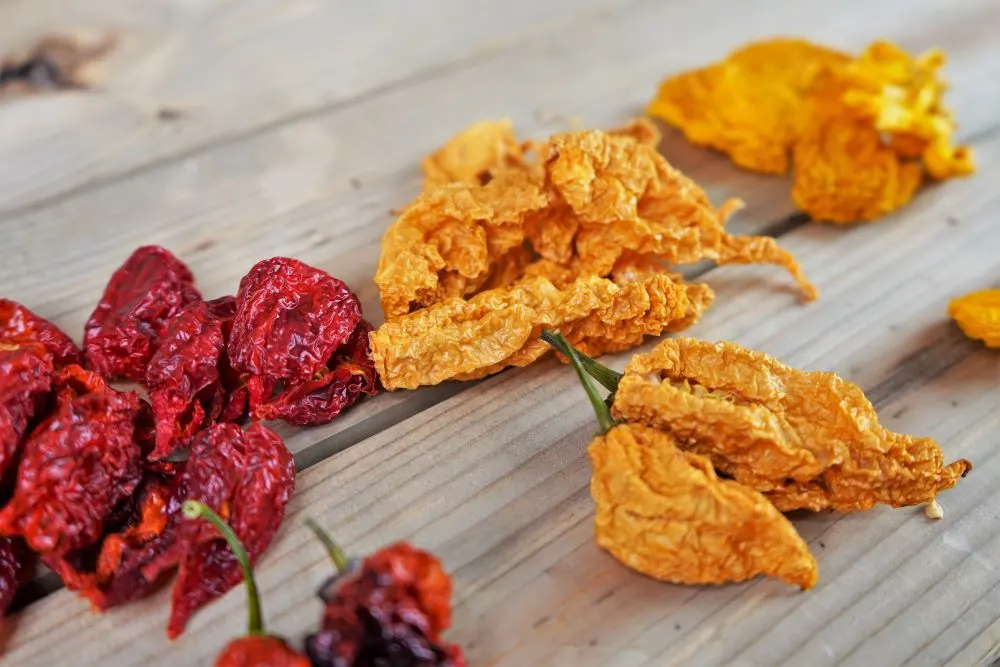
Grind Into a Powder
One of the most fool-proof methods for using dried chili peppers is to grind them into a fine powder. This can then be used to replace paprika, chili powder, or cayenne powder in recipes.
Method:
- Dehydrate peppers until brittle
- Remove any stems
- Grind in a spice grinder (do this outdoors or in a well-ventilated room if using hot peppers, and wear a mask!)
- Store powder in a spice container or a sealed glass jar
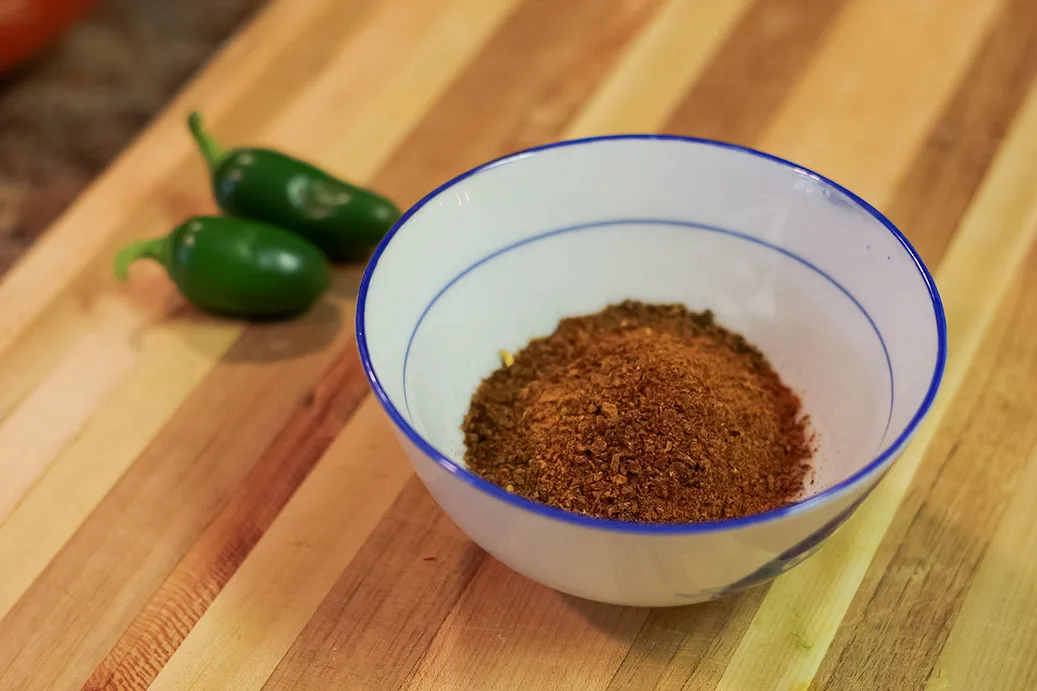
Read more about making your own pepper powder here.
Hot pepper powder is a staple in the Pepper Geek kitchen. It adds powerful flavor and heat to any meal. We particularly like using pepper powder in taco seasoning, on eggs, or in chili con carne. Yum!
Make Chili Flakes
Chili flakes are essentially the same as powder, only ground more coarsely. This can be useful to maintain some of the texture and appearance of the dried chili peppers.
Commonly found on pizza shop tables in a shaker, chili flakes usually contain seeds and large flecks of dried peppers. They add a nice crunch and a strong bite of heat on whatever you’re eating.
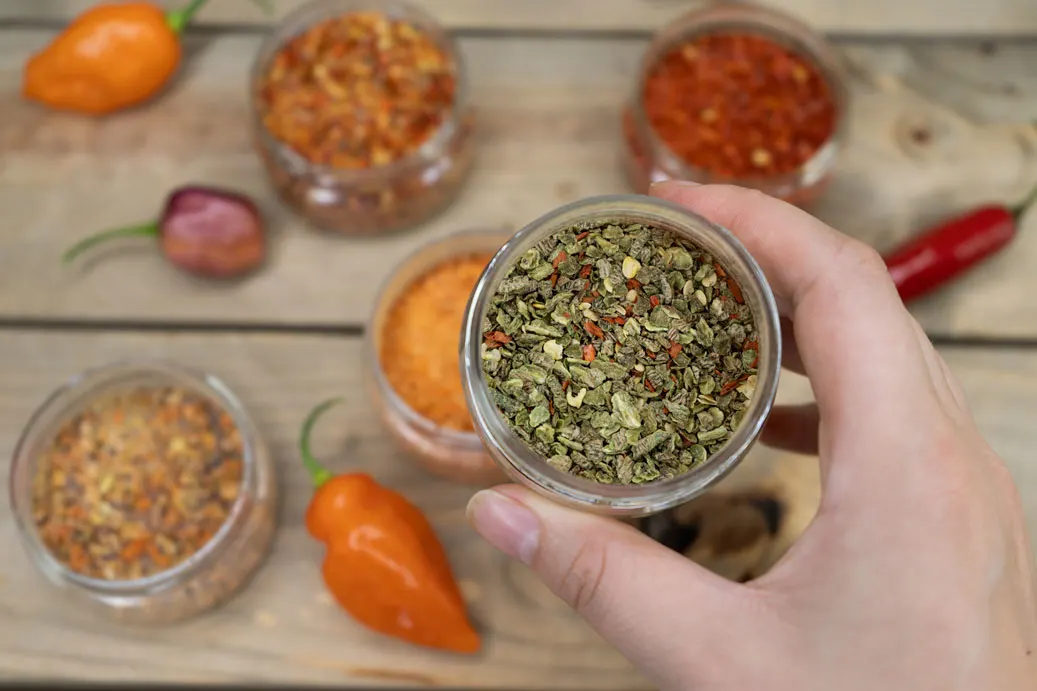
The best type of pepperes for making chili flakes are thin-walled red chilies like tabasco, cayenne, or bird’s eye. However, any hot pepper with thin walls will do (aji charapitas are delicious this way!).
To make chili flakes, follow the same guidelines for powder above, but instead of grinding, pulse slowly or use a mortar and pestle. We also recommend leaving in the seeds from the peppers for a more coarse texture.
Store chili flakes in a shaker with large holes to allow all the pieces to fall through. Great on pizza, pasta, sandwiches and more!
Season Soup or Stock
This is perhaps the simplest way to use your dried chilies. While cooking soup, stock, or chili, throw in a few of the dried chilis to the simmering liquid. This will simultaneously rehydrate the peppers and flavor your meal.
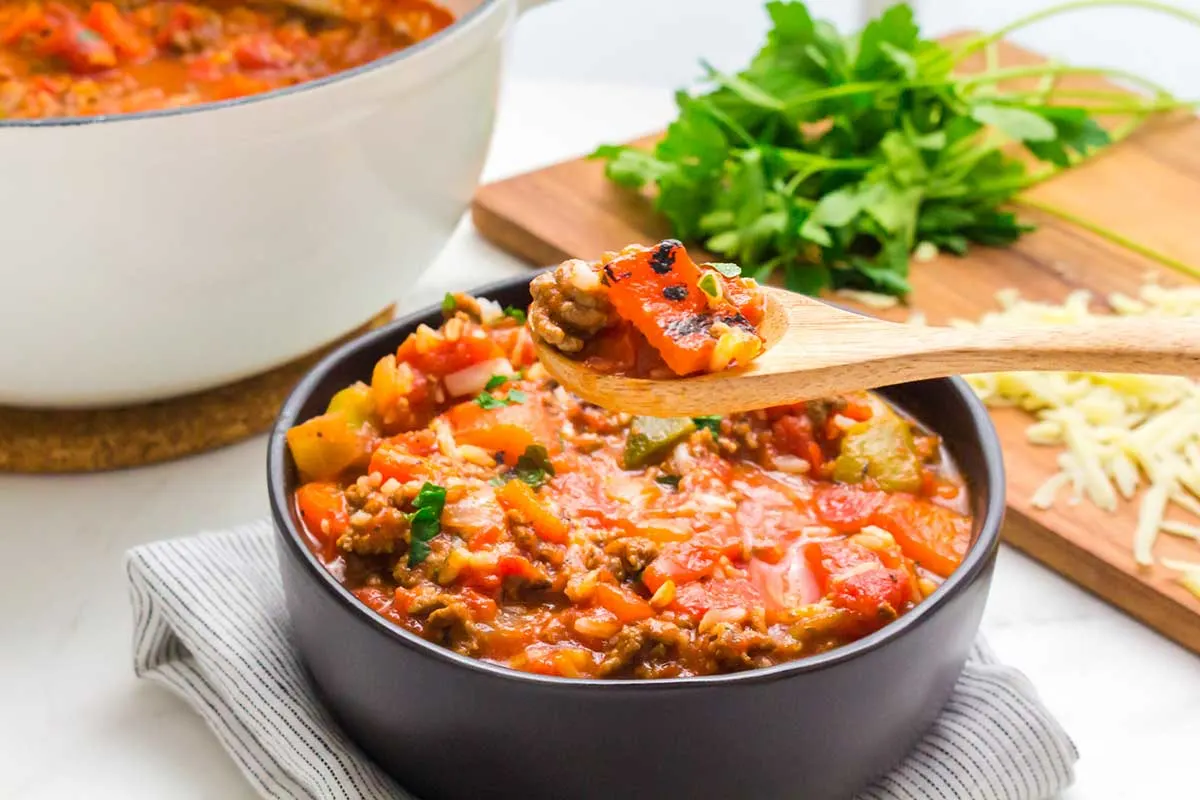
We have had great results using dried New Mexican chiles for a meat taco filling. The peppers turn from leathery and pliable to a soft, limp texture. They can then easily be blended smooth or broken up into small bits.
Tip: Be careful with hot peppers, as the fumes can become intense while cooking. Keep the cover over your simmering pot to keep the spicy fumes contained.
Rehydrate for Cooking
If you want to use your dried peppers for cooking purposes, you should try reconstituting them. This process is super easy, and just requires some hot water and around 10 minutes of time.
Dried peppers are often leathery or brittle in texture, giving them an unwanted crunchy texture in cooked meals. To avoid this, rehydrate the peppers using a bowl of hot water.
Boil the water and remove it from heat, then pour some into a bowl large enough to hold your peppers. Submerge the peppers in the hot water, stirring to ensure an even coating.
Allow the peppers to sit in the water for around 10 minutes, stirring occasionally. When the dried chili peppers are reconstituted, they will have a limp texture. Don’t expect rehydrated chilies to be crisp!
The peppers are now great to use in stir fry, pasta, sauces, or anything that needs a kick of heat and flavor!
Make Chili Paste
Chili paste is a spreadable, spicy (usually) ingredient typically used to make chili con carne. It can also be added to noodles or soups for an added rich flavor and spice.
I recommend using mild or medium heat peppers for paste, as the intent isn’t to be scorching hot. Instead, the goal is to create a rich, concentrated flavor booster ingredient.
Try this homemade recipe from Striped Spatula.
Make Hot Sauce
We love hot sauce. It is even more rewarding when you make a delicious hot sauce yourself at home. We have been asked whether dried peppers can be used for hot sauce, and the answer is yes!
To use dried peppers for hot sauce, reconstitute them first (see above). However, instead of using plain water, you can simply simmer the dried peppers along with the other ingredients that will be in your hot sauce.
Try our habanero hot sauce recipe here. We use apple cider vinegar and water to cook the peppers. During the cooking stage, your dried chili peppers will reconstitute, softening to a blendable consistency. Our scotch bonnet sauce is another option full of flavor.
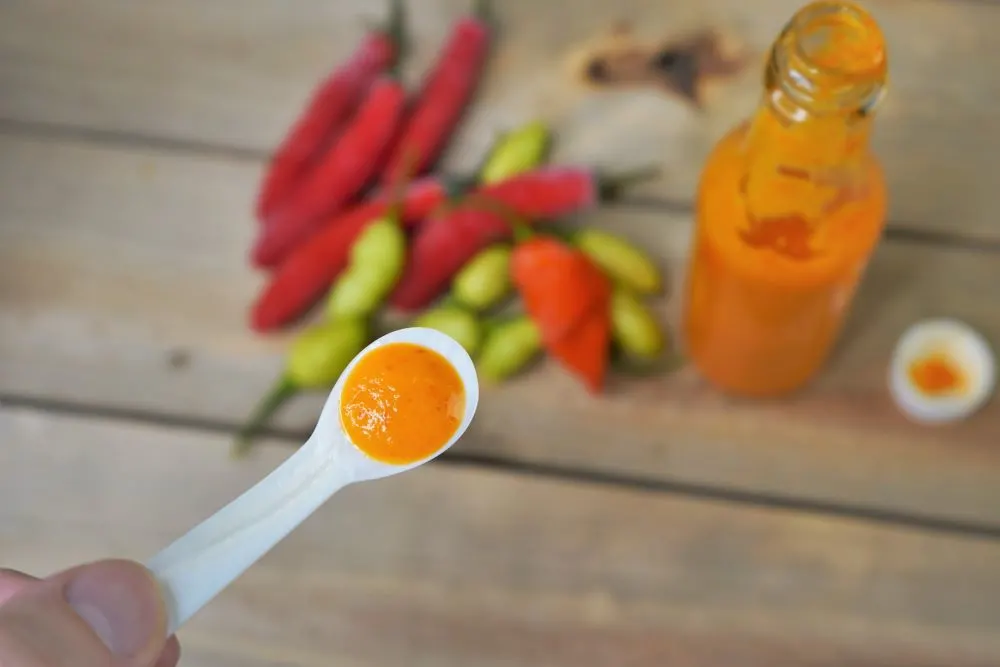
Tip: You can also use dried powder or flakes in homemade hot sauces or salsa – just be sure to rehydrate them in hot liquid.
Use in Fermented Foods
Try adding some dried peppers to your next batch of lacto-fermented foods! We love experimenting with making fermented salsa, hot sauce, and kimchi. Adding a few dried chilis or pepper flakes will spice up the party!
During fermentation, the dried chilis will become soft and hydrated. If the peppers were dried at a lower temperature, the peppers may also contribute some of the good bacteria that liven up a good fermentation.
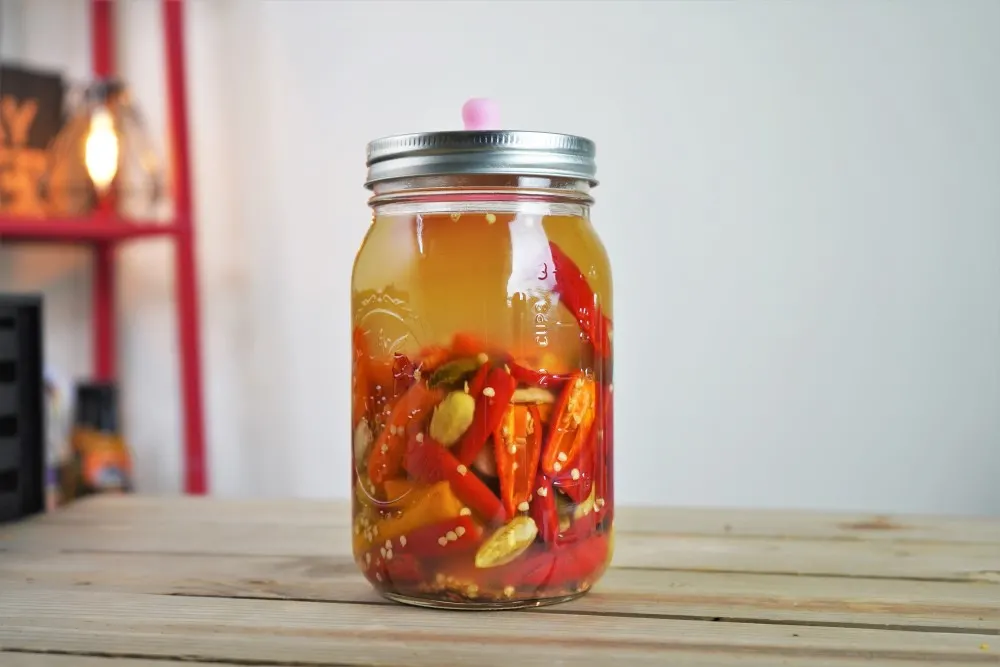
The great thing about fermented foods is the natural acidity that forms. The bacteria consume sugars and produce acid, often making the resulting food shelf stable. Get creative with fermentation (and invest in a good pH meter for safety).
I hope this article gave you some ideas on how to use your dried peppers! No need to let dried chilies go to waste. They can always be stored whole until you are ready to use them. When stored properly, they can keep for years without losing heat or flavor!


M&M
Wednesday 25th of October 2023
Love you kids ideas! We grind/roast cayenne and bird's eye then mix with olive oil. Oh yeah
Kirby
Monday 23rd of October 2023
Sitting on 5 pounds of cayenne peppers and have already made hot sauces and chili powder and was wondering what to do next. This post is leading me to just dehydrate them and then rehydrate as needed. Love your videos and posts.
Greg
Monday 23rd of October 2023
Just tried your habanero hot sauce recipe.Outstanding.
peppergeek
Monday 23rd of October 2023
Glad to hear that! If you get a chance, leave us a star rating on the post here, I'd appreciate it!
Gil berg
Sunday 22nd of October 2023
Just want to say thanks to you and yours for the great resecipes you provide. I am a 98 year old WW2 Marine vet and your information on using peppers is great. Again thanks. Gil
peppergeek
Monday 23rd of October 2023
That's amazing! Thanks for stopping by, and for your service. Glad you enjoy our info.